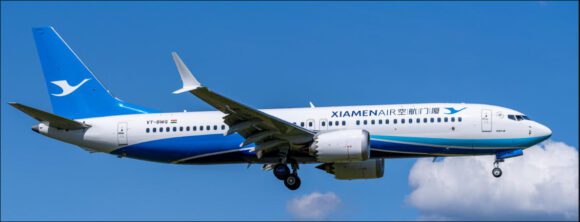Its too bad that there are no online archives going back to the dawn of the widebody era in 1969. There is a useful historical perspective on the 747’s development here. Parallels with the news on the A380 are amazing.The A380, as the world’s largest airliner, attracts attention – every issue attracts the media spotlight. The latest can be seen here. Reading the news you would think the sky is about to start falling. As much as Airbus dislikes these news stories, they keep coming. The ever circumspect Rolls-Royce advised us as follows regarding the latest Singapore A380 flight return: “We are aware of the incident and working with our customer to provide support and technical assistance.”
The 747 program was very complex and experienced a number of interruptions. Engine problems early on plagued the program causing delays – sound familiar? But Boeing persevered as one would expect them to. (Pan Am at one stage had 11 of its 747s parked at JFK due to maintenance problems shortly after introduction) Aerospace people don’t give up – every problem was solved. The program has been challenged time and again. There were questions about developing newer versions of the 747 once the program was running smoothly. Problems occurred throughout the program – Boeing experienced problems with the -400 and even the -8.
So as we read of engine problems and other issues with the A380, keep some perspective. These airplanes are incredibly complex machines. Airlines want to ensure absolute safety. Fortunately the A380 (and other new airplanes) generate tremendous amounts of data from sensors. Pilots are able to make precautionary decisions because they have access to levels of operational data older airplanes did not provide.This means the newer airplanes are much safer.
A380 flight disruptions should not be big news. Big news would be if one crashes. The A380 has already carried millions of people in its short operational history – and there are only 71 flying. It is an airplane much beloved by passengers – ask anyone who has flown it. The headlines are somewhat excitable.
Views: 0




Well, the 747 is not he only plane the A380 can be compared to. The C5 galaxy is another. And guess what problems the C5 had…. Wing cracks. Building and designing such gigantic planes is a tremendous task. And the airplanes have become much more complicated . Afterwards, the C5 also had problems with cracks in the fuselage. The A380 uses glare, which is much more crack-resistant than aluminium, exactly to take care of that problem. So for all those people saying A380 – lol – cracks in the wing! I have enormous respect for all those engineers who built the B747, the C5 galaxy and the A380, even if it had problems at the start.
Why compare the early 747’s and the current A380? They are different airframes in very different eras.
The 747’s JT9D’s were among the very first high by-pass engines made. The A380’s Trent 900’s are built oh so many decades later when there’s much more experience in the industry. We should imagine Rolls-Royce would have by now learned to bring engines into production without the problems experienced regardless of their severity.
And, it’s such a red herring to write, “These airplanes are incredibly complex machines.” They’ve been complex machines since the day’s of the Wright brothers.
Are we to assume nothing is learned by our “Aerospace people,” who, “don’t give up?” Is it their perseverance over knowledge and experience that gives us flight or an engine that doesn’t blow up in flight?
I submit, it’s today’s economics and manufacturers’ tactical decisions influencing these programs that make the A380 gestation similar to the early B747 over complexity and monitoring. Might the 900’s problems be traced to R-R’s focus on services? Did they limit engineering knowing reliability comes by having redundancy with “4 engines 4 long haul,” but instead focused reliability on engines for twins like the Trent 1000 and XWB?
So, rationalizing aeronautical flaws by looking back 60 years isn’t a good excuse. Otherwise we’d be reading, Wright Flyer’s broken propeller shafts somehow justifies B747 and A380 engines issues.